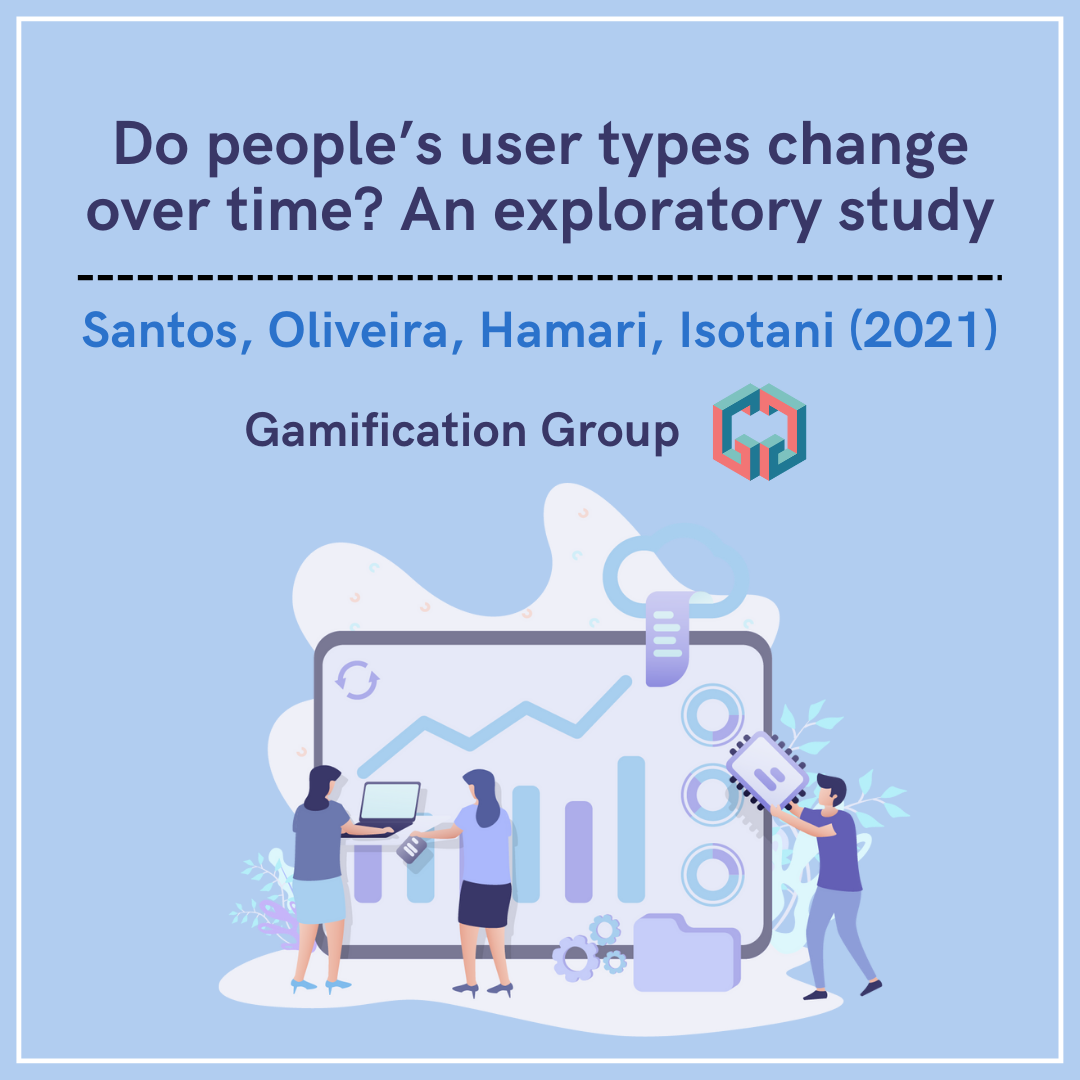
Do people’s user types change over time? An exploratory study
The creation of player typologies to understand the preferences and play styles of different players has been an important component of player research since its inception. It has highlighted the importance of what kind of motivations various players could carry and can influence design decisions accordingly. Player/user types are also an important line of research in gamification. Perhaps even an even more important one, in this case, considering that gamification is used for alternating motives, and creating internal motivation for users is an integral component that can be influenced by player types. One discussion in this area has been whether user types are static or dynamic. This study explores if people’s user types can change over time.
To investigate this question, an exploratory study was conducted in which data from 74 participants was analyzed to identify their user types according to the HEXAD scale (Achiever, Philanthropist, Socialiser, Free Spirit, Player, and Disruptor), with surveys conducted 6 months apart.
The results show that the dominant user type (i.e., the strongest tendency) changes over time and that, consequently, the dominant user types cannot be considered stable. An important implication of this finding is that gamification approaches tailored to player types can also benefit from dynamic understanding and follow-throughs in identifying player types. It was also noted that it is necessary to analyze whether the user represents more than one user type as dominant, as this factor may also change over time. Finally, it was noted that women may be more susceptible to changing the user type than men, as they are more motivated by intrinsically motivated user types.
The article concluded by pointing out some limitations and related opportunities for future research. It was noted that another goal of future studies could be to measure changes in user types after a different time period, with people with more diverse demographic backgrounds, and in specific contexts of gamification applications such as health, sustainability, and more.
Santos, A. C. G., Oliveira, W., Hamari, J., & Isotani, S. (2021). Do people’s user types change over time? An exploratory study. In Proceedings of the 5th International GamiFIN Conference.
Abstract
In recent years, different studies have proposed and validated user models (e.g., Bartle, BrainHex, and Hexad) to represent the different user profiles in games and gamified settings. However, the results of applying these user models in practice (e.g., to personalize gamified systems) are still contradictory. One of the hypotheses for these results is that the user types can change over time (i.e., user types are dynamic). To start to understand whether user types can change over time, we conducted an exploratory study analyzing data from 74 participants to identify if their user type (Achiever, Philanthropist, Socialiser, Free Spirit, Player, and Disruptor) had changed over time (six months). The results indicate that there is a change in the dominant user type of the participants, as well as the average scores in the Hexad sub-scales. These results imply that all the scores should be considered when defining the Hexad’s user type and that the user types are dynamic. Our results contribute with practical implications, indicating that the personalization currently made (generally static) may be insufficient to improve the users’ experience, requiring user types to be analyzed continuously and personalization to be done dynamically.




Sorry, the comment form is closed at this time.